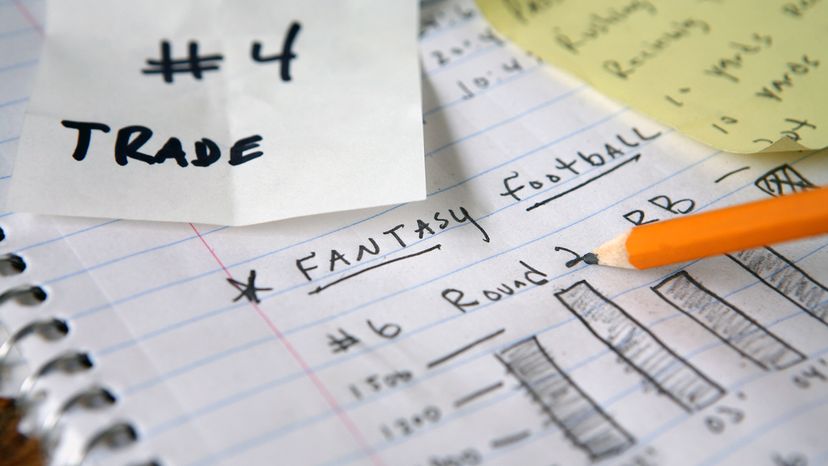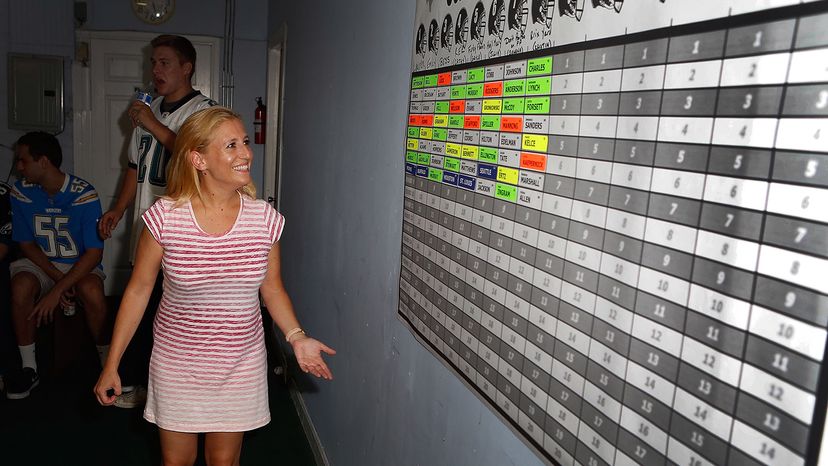
The draft, and all the strategizing, partying and trash talk that goes with it, is a key component of any fantasy football league. If you're a league founder or commissioner, hosting a successful draft is one of your most important duties. A good draft not only assures rough parity among teams, it also gives your league a solid foundation of camaraderie and competitiveness.
To run smoothly, a draft needs plenty of advanced planning and organization. Your approach will differ slightly depending on whether it's a keeper league, where some players carry over on the same team from year to year, or whether you're starting from scratch.
Advertisement
Most leagues use an online site as a base. Some of the most popular are CBS Sports Fantasy Football, Yahoo Sports Fantasy Football and MyFantasyLeague.com. For a fee, you use the site's software to score games and keep track of your league's stats. Establish your league on the Web in advance of your draft and it will make your job a lot easier.
Read on for tips that will help you host a top-shelf fantasy draft.
